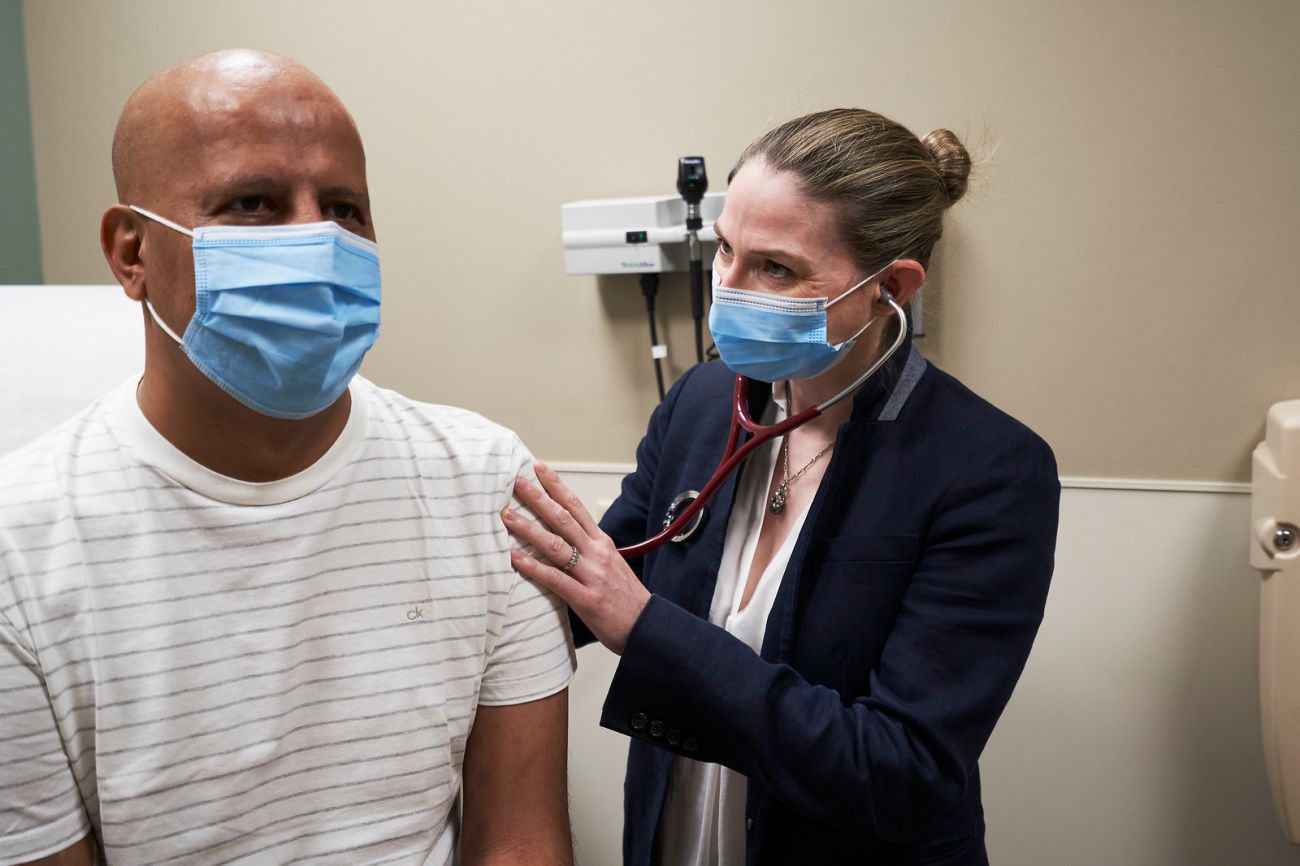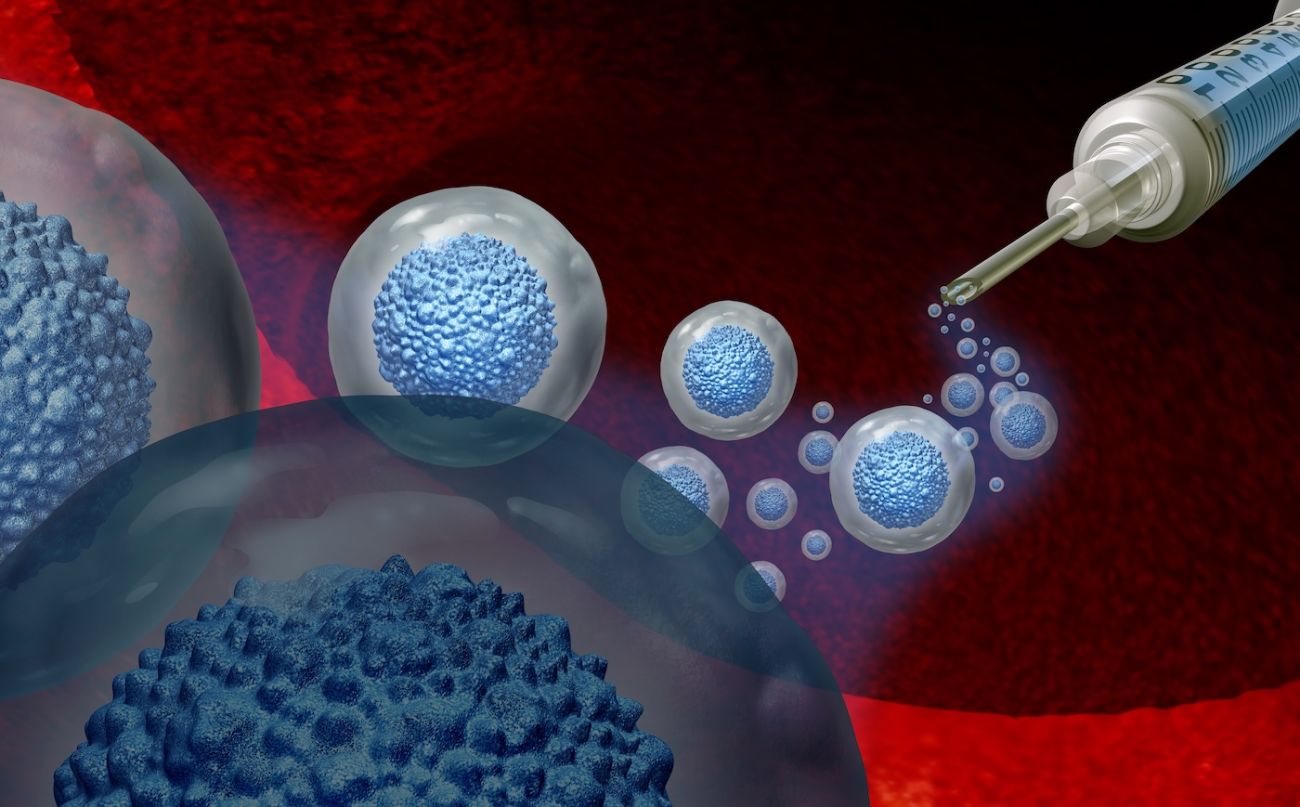Our MDS team follows the National Comprehensive Cancer Network’s internationally recognized guidelines for treating cancer — the most comprehensive, most frequently updated clinical practice guidelines available in any area of medicine. Elizabeth Griffiths, MD, Director of MDS at Roswell Park, is among the national experts who serve on the NCCN committee that develops the guidelines for MDS.
Your MDS treatment depends on:
- The type of MDS you have
- Your MDS disease history over time
- Your age
- Your International Prognostic Scoring System (IPSS) disease risk score, revised IPSS score, and the recently adopted IPSS-molecular score, based upon mutational profiling of your cancer.
- Your overall health
- Your mutational profile
Treatments for MDS
Your care team will create a personalized treatment plan for you that may include one or more of the following approaches.
This approach, also called “watchful waiting” may be recommended for you if your MDS is considered low risk, you feel well, and your blood cell counts are relatively normal. The surveillance would include checking your blood cell counts regularly, about every 3 to 4 months, and repeating a bone marrow biopsy every 1 to 2 years. If there is any change in your status, proceeding to treatment will be discussed. Most treatments for lower risk MDS are designed to improve blood cell counts, so if your levels are normal, no treatment is indicated.
The only cure for MDS is a bone marrow transplant, but this treatment can be very toxic and early transplants have been shown to worsen survival for low-risk patients. The strategy experts recommend is therefore to “watchfully wait” and then treat only if the disease gets worse.
Chemotherapy can be an important part of treatment for many MDS patients, particularly those with high- or intermediate-2 risk MDS. Chemotherapy is considered a disease-modifying treatment, but it cannot cure MDS. An allogeneic bone marrow transplant (BMT) is the only potential cure for patients with MDS.
Some newer therapies are helping MDS patients achieve significant symptom relief over time. These include:
- Azacitidine (Vidaza)
- Decitabine (Dacogen)
- Decitabine-cedazuridine (Inqovi)
These drugs are given in low doses, making them much less toxic than standard chemotherapies. Many patients who receive them find that their blood cells begin to work more effectively, significantly improving quality of life and extending overall survival to some degree.
- Induction therapy. Patients whose MDS has transformed into acute myeloid leukemia sometimes require more intensive treatment, called induction. The goal of induction therapy is to cause a complete remission, or absence of abnormal cells in the bone marrow. Low-dose and high-dose treatments may be used, depending on the patient.
Because chemotherapy can also damage healthy cells, Roswell Park patients who receive induction therapy are admitted to our state-of-the art inpatient unit for approximately one month and are cared for by a specialized team of nurses.
- Consolidation or intensification therapy. To offer the best chance of destroying lingering abnormal cells and prevent the disease from returning, additional rounds of chemotherapy drugs are given every month, on an outpatient basis.
This therapeutic approach uses drugs that lowers your body’s immune response in order to allow your bone marrow stem cells to grow and make new blood cells. This ultimately helps to support your body’s own defenses to fight the MDS. Immunosuppressive therapy (IST) may include one or more of these drugs:
- Antithymocyte globulin (Atgam)
- Cyclosporine (Sandimmune, Neoral)
- Eltrombopag (Promacta)
This approach uses a drug that helps to increase the level of hemoglobin, the protein in red blood cells that carries oxygen. Lenalidomide (Revlimid®) is used for treating only the 5q- syndrome type of MDS.
These supportive care treatments for MDS include blood transfusions, blood-stimulating medicines, and other techniques to remove excess iron after multiple blood transfusions.
Bone marrow transplantation (BMT) offers the only chance for curing MDS. That’s why our physicians work with our BMT specialists to evaluate all our MDS patients on an ongoing basis, to determine who might benefit from the procedure. This helps ensure that everything is in place and ready to go if a transplant should become necessary.
Allogeneic BMT. In an allogeneic transplant, your diseased bone marrow is destroyed with chemotherapy and/or radiation, and afterward you receive stem cells from a healthy donor in a procedure called a rescue.
Our experienced BMT experts also have special expertise with low-dose transplantation, or mini-transplant. This procedure requires lower doses of chemotherapy and radiation but achieves the same success rates as transplants that use high doses. As a result, many MDS patients who were once ineligible for BMT may now be able to undergo the procedure at Roswell Park.
Our Transplant & Cellular Therapy Center features 14 private patient rooms that are HEPA-filtered to maintain the highest level of protection against airborne pathogens. The nurses are specially trained in the management and care of BMT patients, who have special needs because of their weakened immune systems.
We were among the first centers in the world to routinely offer BMT. Today we’re home to the most experienced BMT service in Western New York, performing 160-180 transplants every year. We are a Blue Cross/Blue Shield Blue Distinction Center for transplant and have been designated a Center of Excellence by Optum, MultiPlan, Interlink and Cigna Life Source.
Participating in a clinical trial is the only way to access the very latest options, oftentimes years before they become available to other providers. If you have cancer, you need the very best treatment today, not years from now.

